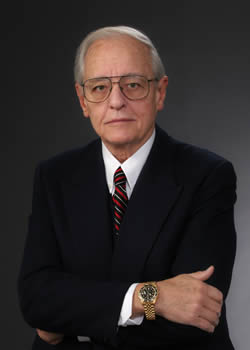Narrowing the Divide: Symposium on math education in Latin America will offer lessons for helping immigrant students
Thirty years ago, Brazil ranked near the bottom of all countries in student mathematics achievement. This year, a 35-year-old Brazilian mathematician, Artur Avila, became the first Latin American to claim the prestigious Fields Medal, awarded by the International Congress of Mathematicians to recognize outstanding achievement and future promise.
How, in just three decades, did not only Brazil, but Latin America in general, transform itself into a theater for innovative mathematics education? What lessons can be applied to improving mathematics education in other regions? And what are the implications for teaching mathematics to Latino immigrants in the United States?
Those questions are the central focus of “Mathematics Education in Latin America,” Teachers College’s second annual international Mathematics Education Symposium, which will be held at the College on Columbus Day, October 13th. (Click here to register.)
“With the vast numbers of children from Latin American countries entering U.S. classrooms, it’s essential for American teachers to understand what kind of mathematics instruction they’ve had previously,” said conference organizer Bruce Vogeli, Clifford Brewster Upton Professor of Mathematical Education, and coeditor of the new anthology, Mathematics and Its Teaching in the Southern America (World Scientific). “While there are cultural gaps that may need bridging, we may deprive capable, well-prepared children if we set expectations too low.”
People from South America, Central America, Mexico and the Caribbean comprise the largest percentage of foreign-born residents in the United States. Among English Language Learner (ELL) students in U.S. schools, Spanish is by far the most common home or first language. In 28 states, more than two-thirds of ELL students speak Spanish at home.
The keynotes addresses at the TC symposium will be delivered by Jeremy Kilpatrick, Regents Professor of Mathematics Education at the University of Georgia, and a former TC faculty member, who has played a major role in both the PISA and TIMSS international assessments; and Angel Ruiz, designer of the new mathematics curriculum for primary and secondary schools for Costa Rica, which is considered a leader in the field throughout the region. Ruiz is also Vice President of the International Commission on Mathematics Instruction (ICMI), an organization that was founded at Teachers College in 1911.
The symposium will include presentation – via Skype – of the Teachers College International Mathematics Education Achievement Award, to Brazilian educator and historian Ubiritan D’Ambrosio, considered Latin America’s elder statesman of mathematics education.
Other attendees will include scholars and educators from a host of Latin American nations and Spanish-speaking regions, including, Chile, , Colombia, Costa Rica, Cuba, Guatemala, Honduras, Mexico, Peru, Puerto Rico and Venezuela, as well as principals, department chairs and teachers from schools across the tri-state area.
Vogeli, who has previously authored a review of math education in the former Soviet Union, is considered one of the world’s leading authorities on international mathematics education. His new book, coedited with two of his former TC doctoral students – Hector Rosario and Patrick Scott – is the first comprehensive review of mathematics teaching in Latin America in 50 years. The previous such review, to which Vogeli also contributed, was edited by Howard Fehr, a Teachers College faculty member who in the 1960s was considered one of the founders of “the new math.”
“The world has become
obsessed with international rankings, to the point that we sometimes lose sight
of the importance of sharing teaching practices and insights across cultures,”
Vogeli said. “By establishing this conference and award, we hope to further a
tradition of productive exchange.” -- Joe Levine
Published Thursday, Oct. 2, 2014
